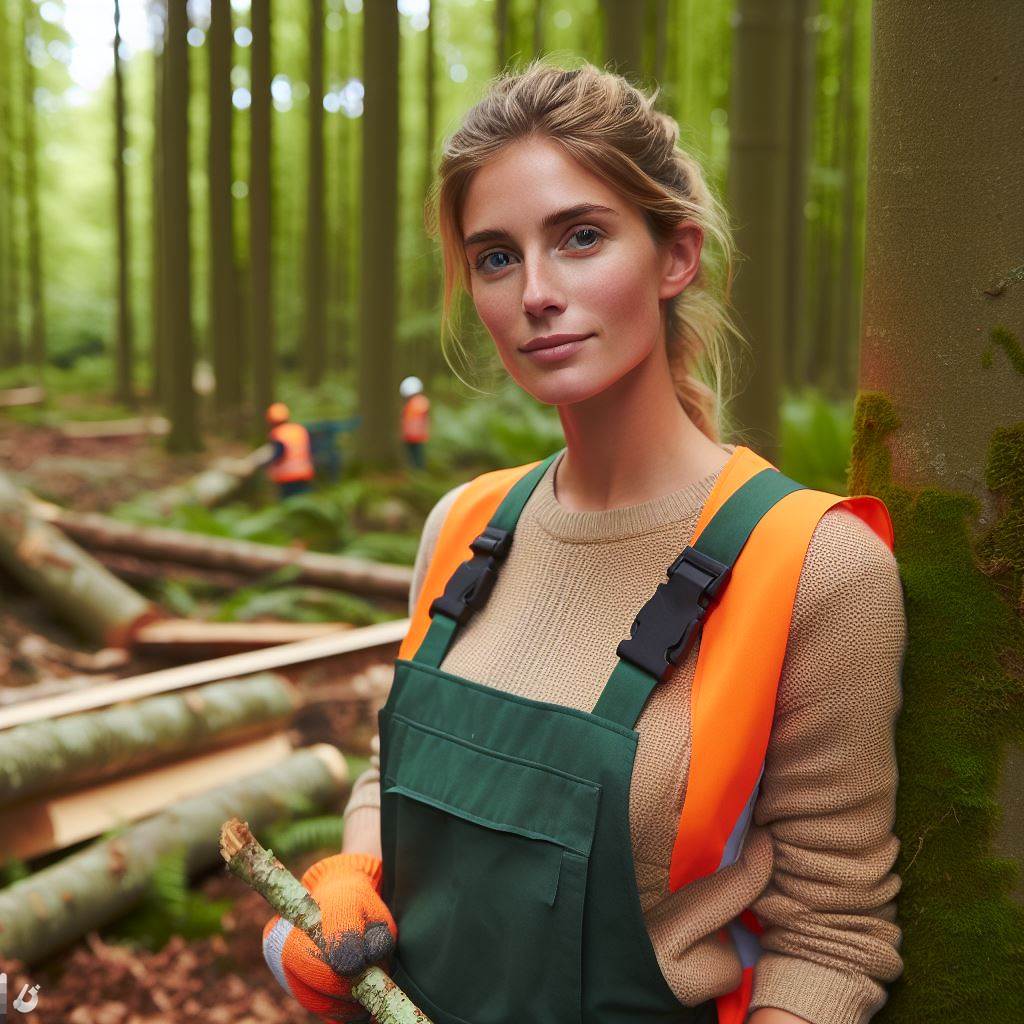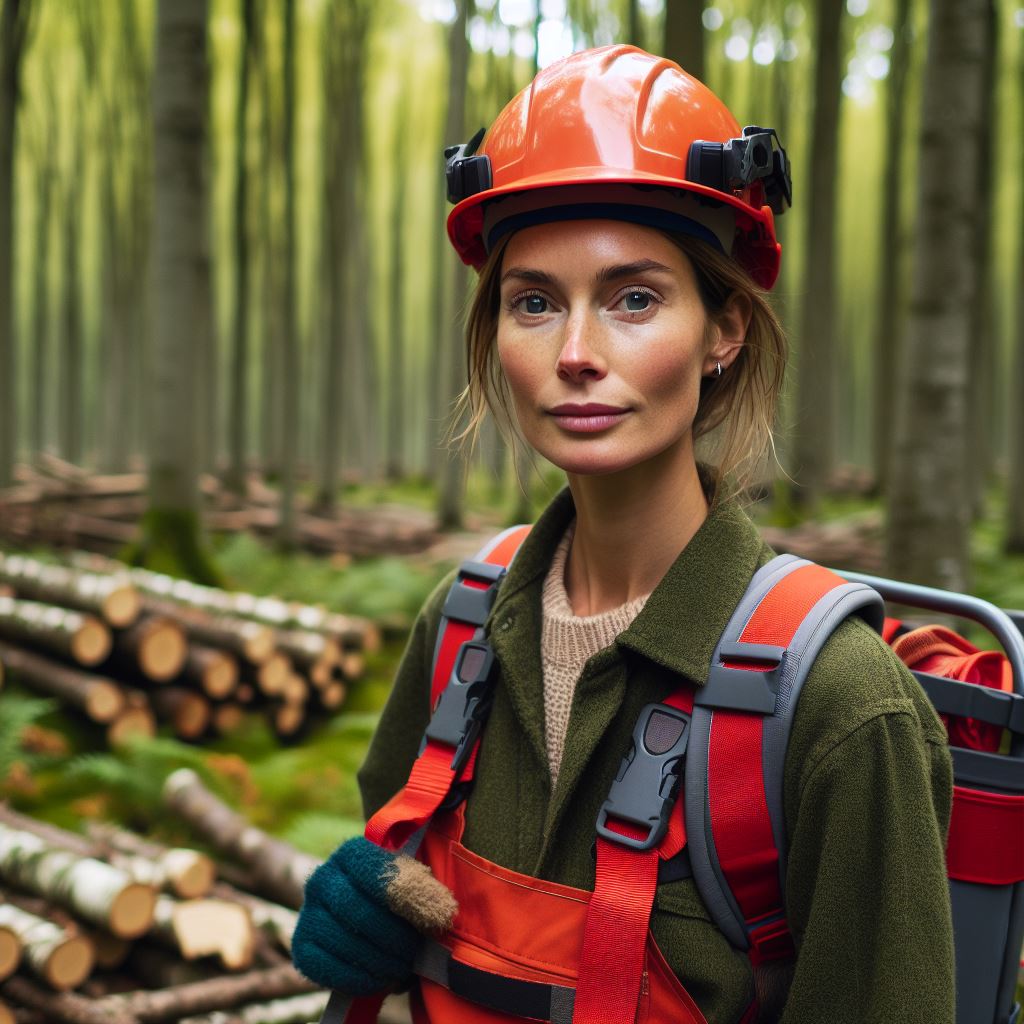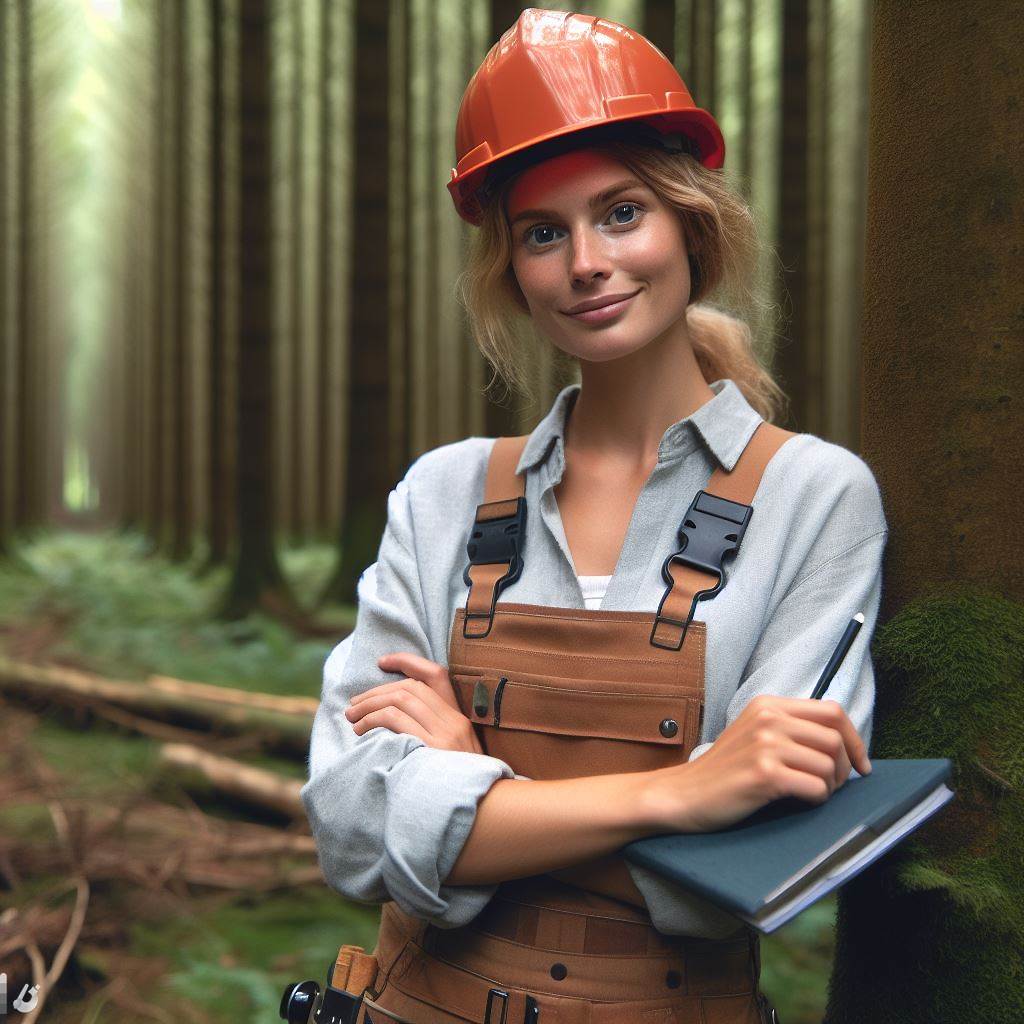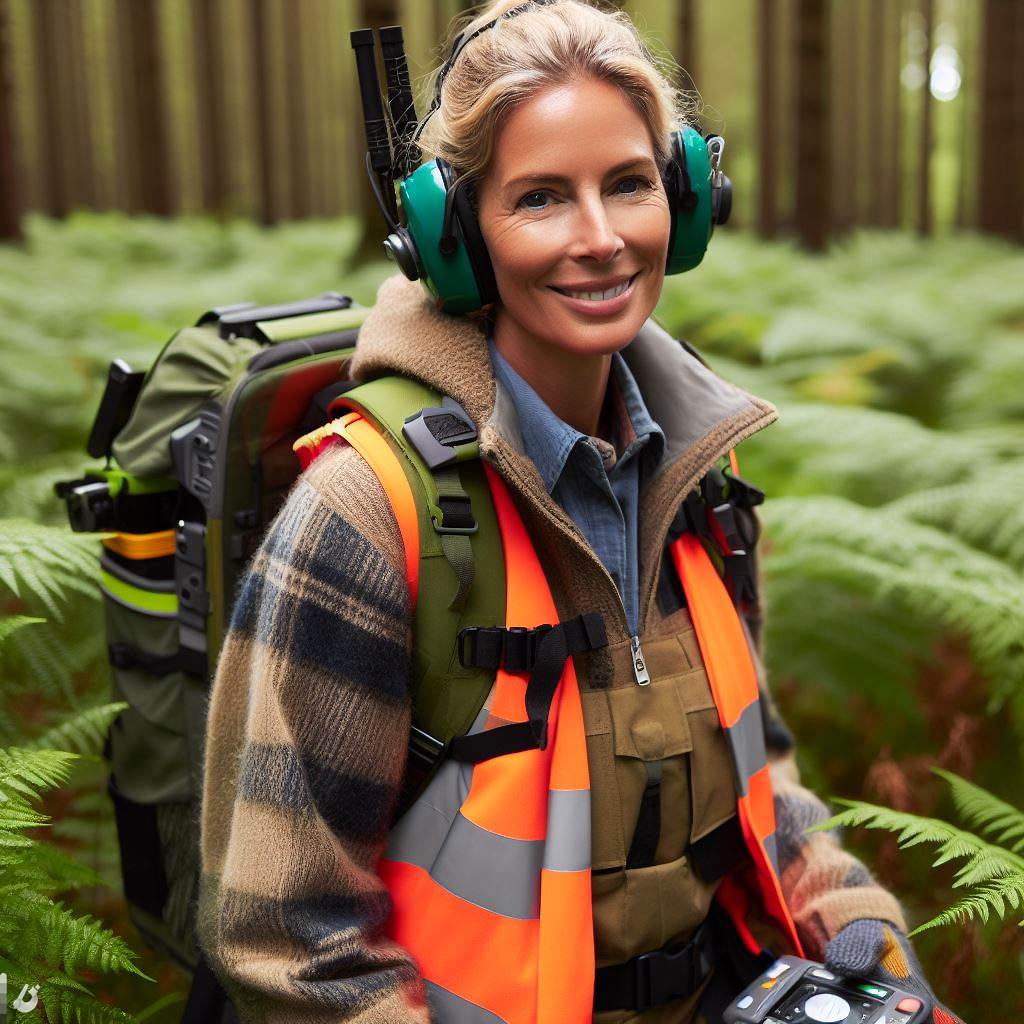Introduction
Arboriculture in the UK is undergoing a transformative journey, sculpting the nation’s landscape and environmental resilience.
As we step into the future, trees emerge as silent guardians, playing a pivotal role in the well-being of our environment and society.
The importance of trees for the environment and society
Trees transcend mere aesthetics; they are the lungs of our cities, purifying the air we breathe and harboring biodiversity essential for ecological balance.
Recognizing their vital role becomes imperative as we navigate the challenges of urbanization and climate change.
The purpose of the blog post
As we traverse the evolving landscape of arboriculture in the UK, the purpose of this blog post becomes clear to unravel the intricate tapestry of our relationship with trees.
Together, let us embrace a future where arboriculture not only adapts to change but also leads the way towards a sustainable and harmonious coexistence with nature.
Current State of Arboriculture
Arboriculture plays a crucial role in maintaining the health and beauty of trees in the UK.
With the increasing awareness of the importance of trees for the environment and human well-being, the demand for tree care services has been on the rise.
However, arborists face significant challenges and issues in meeting this demand effectively.
Overview of the current situation of arboriculture in the UK
- Arboriculture involves the cultivation, management, and study of individual trees, shrubs, and vines.
- The field of arboriculture has seen tremendous growth in recent years.
- In the UK, the majority of tree care services are provided by private companies.
- The industry is regulated by associations such as The Arboricultural Association and International Society of Arboriculture.
- There are an estimated 11,000 professional arborists in the UK.
Existing demand for tree care services
- The demand for tree care services has been increasing due to growing environmental consciousness.
- Trees provide numerous benefits, including carbon sequestration, improving air quality, and enhancing the overall landscape.
- Local authorities, homeowners, and organizations are seeking professional arborists to maintain and manage trees.
- The demand for tree inspections, pruning, and removals has seen a significant surge.
- Urban areas require special attention as trees face challenges such as pollution, limited space, and infrastructure development.
Challenges and issues faced by arborists
- One of the major challenges for arborists is the lack of awareness about proper tree care among the general population.
- There is a shortage of skilled and trained arborists, leading to a competitive marketplace.
- Working at heights and handling heavy equipment poses occupational hazards for arborists.
- The unpredictability of weather conditions makes scheduling tree care services challenging.
- Arborists often face resistance from property owners when it comes to tree removal or pruning.
In general, arboriculture in the UK is thriving due to the increasing demand for tree care services.
The industry has witnessed significant growth, with private companies playing a crucial role in providing these services.
However, arborists face various challenges, including lack of awareness, skill shortages, occupational hazards, and weather constraints.
Despite these obstacles, the future of arboriculture looks promising as people recognize the importance of trees and seek professional assistance for their care and maintenance.
Technological advancements in arboriculture
Technological advancements have paved the way for significant changes in various industries, including arboriculture.
In the UK, the future of arboriculture holds immense potential, thanks to the impact of technology. Let’s explore how technological advancements are revolutionizing the field:
Personalized UK Career Consulting
Receive tailored career guidance designed just for you. Get actionable steps and expert support to boost your career in 1-3 days. Take control of your career now.
Get StartedDrones for Tree Inspection and Monitoring
Drones have emerged as valuable tools for arborists, enabling them to conduct efficient and detailed tree inspections.
These unmanned aerial vehicles can navigate through dense foliage, capturing high-resolution images and videos. The use of drones for tree inspection and monitoring offers several advantages:
- Improved Safety: By eliminating the need for climbers or bucket trucks, drones significantly reduce the risk of accidents. Arborists can assess trees from a safe distance.
- Time and Cost Savings: Drones enable quick and accurate inspections, saving time and reducing labor costs. Arborists can cover more trees in a shorter period.
- Increased Precision: High-resolution imaging allows arborists to detect even minute signs of disease, pests, or structural weaknesses. This precision enhances the accuracy of diagnosis and treatment.
Advanced Equipment in Tree Care Practices
The UK arboriculture industry is witnessing the emergence of advanced equipment that enhances tree care practices. These innovations bring multiple benefits:
- Efficiency Enhancement: Modern machinery, such as hydraulic tree shears and grapples, enables faster and more efficient tree removal, pruning, and maintenance.
- Minimal Environmental Impact: Advanced equipment often includes features that minimize disturbance to the surrounding environment. This ensures sustainable tree management and preservation of natural habitats.
- Precision Treatment: Sophisticated tools like air spades allow arborists to excavate soil around tree roots with compressed air. This technique ensures precise root investigation and targeted treatment.
- Enhanced Climbing Safety: Innovations in climbing gear, such as lightweight and ergonomic harnesses, ropes, and ascenders, improve arborists’ safety and comfort while working at heights.
The use of advanced equipment not only streamlines operations but also enables arborists to provide higher quality tree care services.
Benefits of Technology Integration in Arboriculture
Integrating technology into arboriculture practices can have numerous advantages:
- Improved Data Analysis: Technological tools facilitate data collection, storage, and analysis. This leads to more informed decision-making and a deeper understanding of tree health and management.
- Proactive Maintenance: Remote tree monitoring systems equipped with sensors can detect early signs of stress or pest infestations. This allows arborists to take prompt action and prevent potential risks.
- Enhanced Collaboration: Online platforms and software applications enable arborists to share information and collaborate with colleagues, researchers, and experts from around the world.
- Sustainable Management: Technology integration promotes sustainable tree management by optimizing resource allocation and minimizing the environmental impact of arboricultural activities.
As the UK arboriculture industry embraces technological advancements, the future holds tremendous promise.
Arborists armed with cutting-edge tools and knowledge will be better equipped to provide efficient, safe, and environmentally sound tree care services.
To excel in this rapidly changing landscape, arborists must stay updated with the latest technological developments and embrace innovations that enhance their work.
The future of arboriculture in the UK is undoubtedly synonymous with progress and seamless integration of technology.
Environmental considerations for arboriculture
The growing awareness of the importance of trees for the environment
There is a growing awareness of the importance of trees for the environment.
Trees have always been valuable, but society is now recognizing their crucial role in maintaining a healthy environment.
The importance of trees goes beyond their aesthetic beauty and provides numerous benefits that are becoming increasingly essential for our planet’s wellbeing.
The role of arborists in mitigating climate change through tree planting and maintenance
Arborists play a vital role in mitigating climate change through tree planting and maintenance.
Arborists, as tree care specialists, play a significant role in mitigating climate change.
They contribute to carbon sequestration by planting and maintaining trees, which absorb carbon dioxide and release oxygen.
Your Dream Job Starts with a Perfect CV
Get a tailored CV and cover letter that captures your unique strengths and stands out in your industry. Let us help you make an unforgettable first impression.
Get StartedWith the increasing threat of global warming, arborists are actively working to counteract the effects by promoting tree growth and health.
Furthermore, arborists also contribute to urban heat island mitigation. With more and more people residing in cities, the urban heat island effect has become a significant concern.
Trees provide shade, cool the surrounding air, and reduce energy consumption in urban areas.
Arborists help in strategically planting and maintaining trees to maximize these benefits, leading to a more sustainable and comfortable environment.
How the emphasis on environmental sustainability will shape the future of arboriculture
The future of arboriculture is undeniably molded by an emphasis on environmental sustainability.
As climate change intensifies, arborists face a rising demand for effective urban forest management and tree planting initiatives.
Arborists shift focus from mere aesthetics to prioritizing tree health.
Sustainable practices, including organic fertilizers and natural pest control, aim to boost tree resilience and minimize ecological impact.
Integration of technology, like GIS and remote sensing, streamlines tree population analysis, informing decisions on planting and maintenance.
Future arboriculture embraces resilient tree species, promoting biodiversity and supporting local ecosystems.
With trees gaining economic importance, the demand for skilled arborists grows. The push for greener landscapes amplifies professional opportunities in arboriculture.
In essence, heightened environmental awareness, arborists’ pivotal role in climate mitigation, and a focus on sustainability collectively shape the future of UK arboriculture.
Arborists, with their expertise, drive toward a greener, healthier, and more sustainable environment.
Read: UK Aquaculture Technician: Career FAQs
Changing demands and skills
Evolving needs and expectations of clients in arboriculture
- Increased demand for tree maintenance and care due to heightened awareness of environmental benefits.
- Clients expect arborists to provide advice on tree health, maintenance, and selection.
- Growing emphasis on sustainable practices, including the use of organic fertilizers and pesticides.
- Rising interest in urban forestry, with more clients seeking tree planting solutions in urban landscapes.
- Increase in requests for tree risk assessment and management to ensure public safety.
- Expanding awareness of the aesthetic and economic value provided by healthy and well-maintained trees.
The increasing focus on tree preservation and conservation
- Recognition of the vital role trees play in mitigating climate change and improving air quality.
- Shift towards preserving existing trees rather than solely focusing on removal and replacement.
- Development of tree preservation orders and conservation areas to protect important trees and woodlands.
- Growing appreciation for the unique ecological benefits provided by ancient and veteran trees.
- Adoption of sustainable tree management practices, such as crown reduction and selective pruning.
- Integration of trees into urban planning to promote biodiversity and enhance green infrastructure.
The importance of continuous professional development and acquiring new skills for arborists
- Arboriculture is a rapidly evolving field, requiring arborists to stay updated with the latest techniques and research.
- Professional development helps arborists deliver the highest standards of care for trees and landscapes.
- Acquiring new skills, such as advanced climbing techniques and tree risk assessment, enhances job opportunities.
- Knowledge of tree biology, pest and disease management, and tree identification is crucial for professional growth.
- Further education and certification programs enable arborists to specialize in specific areas of expertise.
- Continuous learning cultivates a culture of innovation and ensures the longevity of the arboriculture profession.
The future of UK arboriculture demands adaptability from arborists. Increasing client awareness of environmental benefits propels a surge in tree maintenance requests.
Arborists must offer expert advice and champion sustainable practices.
Optimize Your LinkedIn for Success
Boost your LinkedIn profile with a professional bio, keyword-rich headline, and strategic recommendations that attract recruiters. Stand out from the crowd and get noticed.
Optimize NowPreservation efforts shift from removal to protection, spurred by trees’ crucial role in climate mitigation. Sustainable practices, like crown reduction and selective pruning, become imperative.
Continuous professional development is key. Staying current with techniques ensures top-tier care.
Acquiring new skills, from advanced climbing to risk assessment, broadens opportunities and fosters growth.
In essence, arborists must meet evolving client expectations, emphasizing preservation and sustainability.
By adapting and advancing skills, they not only secure their profession’s future but also contribute to the preservation of the UK’s natural environment.
Read: Sustainable Practices in UK Aquaculture Tech

Government policies and regulations
Government policies and regulations play a crucial role in shaping the future of arboriculture in the UK.
These policies are instrumental in ensuring the protection and sustainable management of trees and green spaces. Here are some key points to consider
The role of government policies and regulations in shaping the future of arboriculture
Government policies must also address the issue of invasive tree pests and diseases.
Efforts should be made to prevent their introduction, spread, and impact on the tree population through strict regulations, monitoring, and control measures.
Policies should focus on promoting professional arboriculture standards and qualifications.
This helps ensure that tree works are carried out by well-trained and competent individuals, reducing the risk of tree damage or improper management practices.
The impact of environmental policies on tree protection and management
Environmental policies have a direct impact on tree protection and management.
They provide guidelines for maintaining biodiversity, conserving natural resources, and mitigating climate change.
The introduction of legislation such as the Tree Preservation Orders (TPOs) has been instrumental in protecting trees of significant importance.
TPOs prohibit the cutting, uprooting, topping, or lopping of protected trees without prior permission.
The UK government has recognized the importance of urban trees in mitigating air pollution, reducing the urban heat island effect, and improving overall quality of life.
Thus, it has implemented policies to encourage tree planting in urban areas.
The need for collaboration between arborists and policymakers for sustainable arboriculture
Governments have also recognized the need for collaboration between arborists and policymakers to ensure sustainable arboriculture practices.
Arborists possess valuable knowledge about tree health and management, which can help policymakers make informed decisions.
Collaboration between arborists and policymakers can be achieved through platforms such as advisory committees, working groups, and stakeholder consultations.
This type of collaboration ensures that policies are practical, effective, and tailored to the specific needs of arboriculture.
Funding is essential to support the implementation of arboriculture policies and regulations.
Governments should allocate adequate resources to enable effective enforcement, training programs, research, and development.
The UK’s departure from the European Union (Brexit) may have implications for arboriculture policies.
It is important for policymakers to reassess and adapt policies accordingly to ensure a smooth transition and continued tree protection.
Public awareness campaigns can be launched to educate individuals on the importance of arboriculture and their role in tree protection.
With increased public support, policymakers are more likely to prioritize and enact effective policies.
In fact, government policies and regulations play a vital role in shaping the future of arboriculture in the UK.
Environmental policies, collaboration between arborists and policymakers, professional standards, invasive pest control, funding.
Public awareness are all crucial aspects to consider for sustainable arboriculture.
By implementing effective policies and actively involving arborists in the decision-making process, the UK can ensure the long-term preservation and management of its valuable tree resources.
Read: Aquaculture in the UK: Education Pathways
Uncover the Details: Organic Farming in the UK: Methods & Benefits
Career prospects and opportunities
The potential growth and opportunities in the field of arboriculture
The field of arboriculture has immense potential for growth and career opportunities. With the increasing focus on environmental conservation, the demand for skilled arborists is rising.
The increasing demand for urban forestry professionals
Urban forestry professionals are in high demand as cities aim to create greener and more sustainable environments.
Arborists play a crucial role in maintaining and managing urban forests and green spaces.
The potential for entrepreneurship and freelance work in arboriculture
The potential for entrepreneurship in arboriculture is significant, offering opportunities to start tree care businesses.
Entrepreneurs in this field can provide services like tree planting, pruning, and maintenance to residential and commercial clients.
Freelance work is also a viable option for arborists, allowing them to work on diverse projects independently.
Independently contracting arborists can collaborate with different organizations and communities for various tree care activities.
Freelancing provides flexibility and the chance to explore different aspects of arboriculture and work with diverse clients.
Tree care professionals can establish their reputation and build a strong client base by delivering quality services. Networking within the industry can lead to a wide range of career opportunities and professional growth.
Continued learning and staying updated with the latest practices and technology can enhance career prospects.
Arboriculture offers the possibility of specialization, allowing individuals to focus on specific areas of tree care.
Specializations like tree risk assessment, tree preservation, or urban forestry offer unique career paths.
Arboriculture professionals can pursue certifications and accreditations to demonstrate their expertise and enhance their employability.
Government initiatives and awareness campaigns about tree preservation and urban greening create further job prospects.
Arboriculture can provide a fulfilling career for individuals passionate about the environment and tree conservation.
The field offers opportunities to contribute to the enhancement of green spaces and mitigate the impact of urbanization.
Arborists can make a positive impact on their communities by improving the health and longevity of trees.
Engaging in arboriculture can also lead to social and environmental awareness, promoting sustainable practices.
Tree care professionals can collaborate with other environmental experts and organizations to tackle complex challenges.
Read: Aquatic Health Management by UK Experts
Conclusion
The future of arboriculture in the UK is incredibly promising. Throughout this blog post, we have explored the key points surrounding this topic.
Firstly, we highlighted the growing demand for arboricultural services due to urbanization and the need to maintain healthy trees.
The impact of climate change has also made arboriculture crucial in managing and protecting trees from disease and increasing their resilience.
Next, we discussed the importance of investing in education and training programs to ensure a skilled workforce in arboriculture.
By providing proper training and certification, we can ensure the highest level of quality and professionalism in the industry.
Furthermore, we emphasized the role of technology in advancing arboriculture.
Innovations such as tree risk assessment tools and tree management software are enhancing the efficiency and accuracy of tree care practices.
Overall, arboriculture plays a significant role in the future of the UK on multiple fronts.
It contributes to environmental sustainability, improves air quality, provides recreational spaces, and enhances the overall beauty of our cities and countryside.
To ensure the growth and success of arboriculture, it is crucial to promote and support the industry.
This can be achieved through public awareness campaigns, government policies that prioritize green spaces, and collaboration between arborists, researchers, and policymakers.
In the end, arboriculture is not only about trees, but it is about our future. It is about creating a greener and healthier environment for generations to come.
By recognizing the significance of arboriculture and actively supporting its growth, we can pave the way for a brighter future in the UK.
[E-Book for Sale]
500 Cutting-Edge Tech Startup Ideas for 2024 & 2025: Innovate, Create, Dominate
$19.99 • 500 Tech Startup Ideas • 62 pages
You will get inspired with 500 innovative tech startup ideas for 2024 and 2025, complete with concise descriptions to help you kickstart your entrepreneurial journey in AI, Blockchain, IoT, Fintech, and AR/VR.




